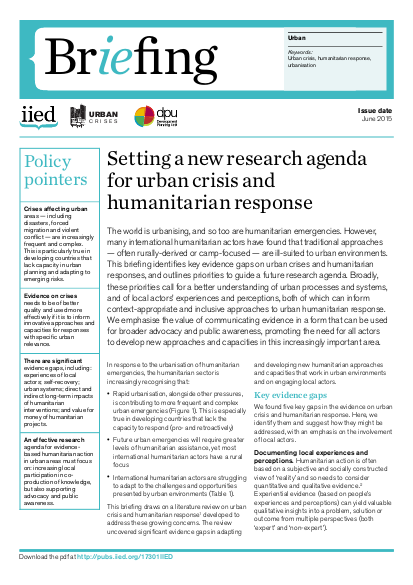
The world is urbanising, and so too are humanitarian emergencies. However, many international humanitarian actors have found that traditional approaches — often rurally-derived or camp-focused — are ill-suited to urban environments. This briefing identifies key evidence gaps on urban crises and humanitarian responses, and outlines priorities to guide a future research agenda. Broadly, these priorities call for a better understanding of urban processes and systems, and of local actors’ experiences and perceptions, both of which can inform context-appropriate and inclusive approaches to urban humanitarian response. The authors emphasise the value of communicating evidence in a form that can be used for broader advocacy and public awareness, promoting the need for all actors to develop new approaches and capacities in this increasingly important area.
Resource collections
- UN Habitat - Urban Response Collection
- Urban Response - Urban Crisis Preparedness and Risk Reduction
- Urban Response Collection - Community Engagement and Social Cohesion
- Urban Response Collection - Economic Recovery
- Urban Response Collection - Environment and Climate Change
- Urban Response Collection - Housing, Land and Property
- Urban Response Collection - Urban Crisis Response, Recovery and Reconstruction
- Urban Response Collection - Urban Resilience